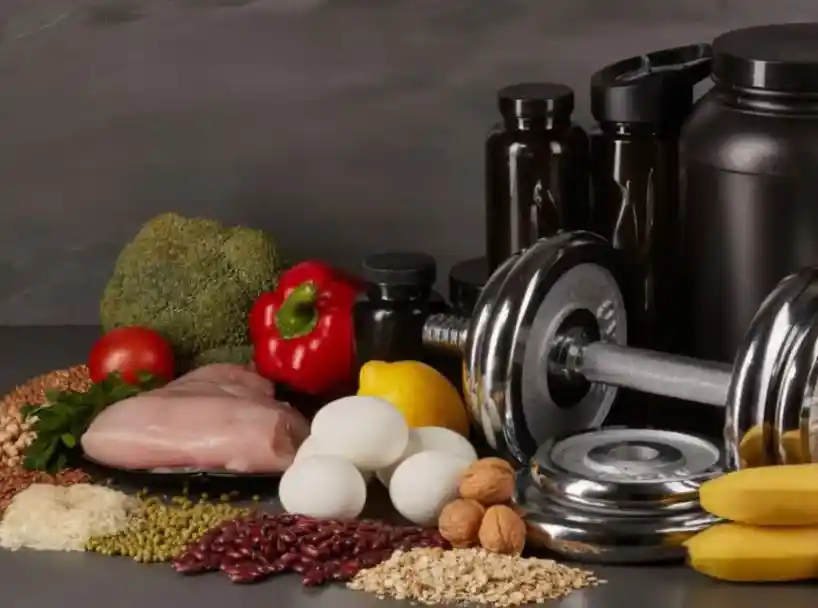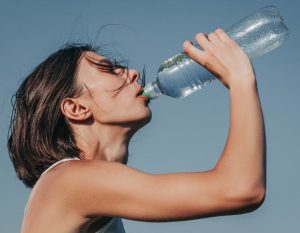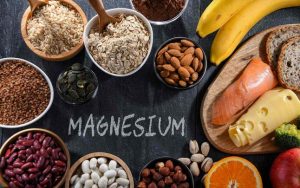
When we think of sports nutrition, protein shakes often come to mind as the go-to supplement for athletes and fitness enthusiasts. While protein is indeed essential for muscle repair and recovery, sports nutrition extends far beyond just protein shakes. In this article, we will explore the diverse world of sports nutrition, uncovering essential supplements and strategies that go beyond protein shakes to enhance athletic performance, support recovery, and optimize overall fitness levels. Let’s dive into the exciting realm of sports nutrition and discover its untapped potential.
1- Understanding Sports Nutrition:
Sports nutrition is a dynamic and evolving field that recognizes the unique demands placed on athletes and active individuals. Whether you’re a professional athlete, a fitness enthusiast, or engage in regular physical activity, understanding the principles of sports nutrition can significantly impact your performance and overall health.

Macronutrients and Energy Needs:
At the core of sports nutrition are macronutrients – carbohydrates, proteins, and fats. These nutrients provide the body with the energy required for exercise and support various physiological processes. Carbohydrates are the primary fuel source for high-intensity activities, and athletes often prioritize consuming complex carbohydrates to sustain energy levels during training and competition. Proteins, on the other hand, are essential for muscle repair and growth. Athletes need adequate protein intake to recover from intense workouts and support muscle adaptation. Fats are another energy source, especially during prolonged endurance activities, and are crucial for hormone production and cell function.
The energy needs of athletes vary depending on factors such as training intensity, duration, body composition, and individual metabolism. Understanding and properly balancing macronutrient intake is key to optimizing energy levels and enhancing performance.
Hydration and Electrolytes:
Proper hydration is vital for athletes to perform at their best. Dehydration can lead to a decrease in endurance, strength, and overall performance. Athletes lose fluids through sweat during exercise, and it’s crucial to replenish these losses to avoid dehydration. In addition to water, sweat contains essential electrolytes such as sodium, potassium, magnesium, and calcium. Electrolytes help maintain fluid balance, nerve function, and muscle contractions. Sports drinks or electrolyte supplements can be beneficial during prolonged or intense workouts to replace both fluids and electrolytes.
Micronutrients for Optimal Performance:
While macronutrients provide the bulk of energy, micronutrients such as vitamins and minerals are equally important for optimal performance. Athletes have higher nutrient requirements due to increased energy expenditure and metabolic demands. Iron, for example, is critical for oxygen transport and energy production, and athletes, especially female athletes, are at higher risk of iron deficiency. Calcium and vitamin D are essential for bone health and should be prioritized to prevent stress fractures and support overall skeletal integrity.
Athletes must ensure a well-balanced diet that includes a variety of nutrient-dense foods to meet their micronutrient needs. In some cases, dietary supplements may be recommended to fill specific gaps, but these should be taken with caution and under the guidance of a healthcare professional.
Timing and Composition of Meals:
The timing and composition of meals can significantly impact athletic performance and recovery. Pre-exercise meals should be rich in carbohydrates to top off glycogen stores and provide readily available energy. Including some protein in pre-exercise meals can aid in muscle preservation and reduce muscle breakdown during prolonged activities. Post-exercise nutrition is essential to initiate the recovery process. Consuming a combination of carbohydrates and protein within the first hour after exercise helps replenish glycogen stores and promotes muscle repair.
Ergogenic Aids and Supplements:
Ergogenic aids are substances or techniques that are believed to enhance athletic performance. While some supplements have scientific support and are widely used by athletes, others may lack evidence or could be potentially harmful. Common ergogenic aids include creatine, caffeine, beta-alanine, and branched-chain amino acids (BCAAs). These supplements may enhance energy production, delay fatigue, and promote recovery. However, it is essential for athletes to approach the use of supplements with caution and consider their individual needs and goals. Misusing supplements or relying solely on them for performance gains can lead to adverse effects or suboptimal results.
2- The Best Supplements for Sports Nutrition:

2-1 Branched-Chain Amino Acids (BCAAs)
BCAAs, including leucine, isoleucine, and valine, are essential amino acids that promote muscle protein synthesis, reduce muscle breakdown, and aid in recovery. They can be consumed in supplement form or obtained from dietary sources such as meat, fish, and dairy.
2-2 Creatine
Creatine is a naturally occurring compound found in meat and fish. It has been extensively studied for its ability to enhance strength, power, and muscle mass. Creatine supplements can provide an additional boost for athletes engaged in high-intensity, short-duration activities.
2-3 Beta-Alanine
Beta-alanine is an amino acid that increases the production of carnosine, a compound that helps buffer lactic acid buildup in muscles during intense exercise. Supplementing with beta-alanine has been shown to improve high-intensity performance and delay muscle fatigue.
2-4 Electrolytes
During prolonged exercise or intense physical activity, electrolytes such as sodium, potassium, and magnesium are lost through sweat. Replenishing electrolytes is vital for maintaining proper hydration, muscle function, and overall performance. Electrolyte supplements or sports drinks can help restore electrolyte balance.
2-5 Omega-3 Fatty Acids
Omega-3 fatty acids, found in fatty fish, walnuts, and flaxseeds, possess anti-inflammatory properties and support cardiovascular health. They may aid in reducing exercise-induced inflammation and promoting recovery.
3 – 4 Strategies for Sports Nutrition
3-1 Timing and Macronutrient Balance
Optimal sports nutrition involves consuming a well-balanced diet that includes carbohydrates, proteins, and fats in appropriate ratios. Timing nutrient intake around workouts, competitions, and recovery periods can maximize performance and aid in muscle repair.
3-2 Hydration
Staying hydrated is crucial for athletes. Water intake should be consistent throughout the day and increased during intense training sessions or competitions. Monitoring hydration levels and replenishing fluids accordingly is essential.
3-3 Individualized Approach
Sports nutrition needs vary from person to person based on factors such as body composition, training intensity, and specific athletic goals. Consulting with a sports nutritionist or registered dietitian can help tailor a personalized nutrition plan.
3-4 Whole Foods
While supplements can be beneficial, they should complement a well-rounded diet rich in whole foods. Focusing on nutrient-dense sources such as fruits, vegetables, lean proteins, and whole grains provides a solid foundation for sports nutrition.
Conclusion
Sports nutrition is a fundamental aspect of athletic success and overall well-being. Properly fueling the body with the right nutrients ensures that athletes have the energy to perform at their best, recover effectively, and support long-term health. Understanding the role of macronutrients, hydration, micronutrients, meal timing, and the use of supplements can make a significant difference in an athlete’s performance and overall athletic journey. Consulting with a sports nutritionist or registered dietitian can provide personalized guidance and optimize nutrition strategies to meet individual goals and maximize athletic potential. Ultimately, a well-rounded approach to sports nutrition, combined with dedicated training and a positive mindset, sets the stage for athletic success and a thriving athletic lifestyle.
Sports nutrition encompasses a broad range of supplements and strategies that extend beyond protein shakes. By understanding the diverse array of supplements available, including BCAAs, creatine, beta-alanine, electrolytes, and omega-3 fatty acids, athletes can enhance their performance, optimize recovery, and support overall fitness levels. Coupled with proper timing, hydration, and an individualized approach, sports nutrition can unlock the potential for peak athletic performance.




